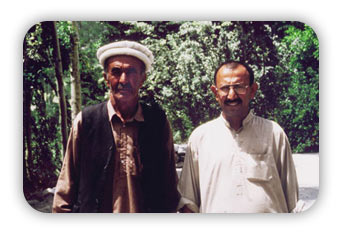The traditional Hunza people who lived in Kashmir Valley were known
for their extreme longevity. Prior to 1970 when the Pakistani government built a road into Kashmir Valley they lived up to 120 years of age and the main cause of death was old age or
diseases or poverty; not degenerative disease like in
the West. Their diet contained extremely few animal products.
However now they eat a more western style diet and suffer the same degenerative diseases the west does.
Animal products contain saturated fat and are directly
implicated in a variety of diseases which shorten the
life span (osteoporosis, cancer, gout, kidney stones and
kidney diseases, rheumatoid arthritis, heart disease,
colon diseases to name just a few). Also, eating meat
raises blood cholesterol and blood albumin and the higher
these two are, the higher the risk of heart disease, cancer,
diabetes etc.
The traditional Hunza diet, on which The Essential
Oil Cookbook is based, consists of unprocessed whole
foods rich in fiber; 40% calories from whole grains, 30%
calories from vegeables, 15% from fruits, 10% beans, 4%
nuts/seeds and only 1% from animal products. The Hunzas
ate 80% of their vegetables and 100% of their fruit raw.
They consumed 10-15% of total calories from fat and were
never obese. Theirs was a low fat diet. These people did
not need a weight-loss program - they already had it!

Here is a photo comparing two men from Hunza land. The one on the left is actually older but eats the traditional Hunza diet. The one on the right eats modern western foods and is fat, bald and greasy. What does that tell you?
An excellent book to read on the subject of longevity
is Long Life Now by Lee Hitchcox D.C. It is packed
with over 2,000 medical references and includes a chapter
on biomarkers (measures of biological age) and also one
on the Hunza Diet. The author also posts his personal
biomarkers. To purchase call (415)455-0220 in the U.S.
For Menkit Prince's personal biomarkers and measures
of longevity, click here.